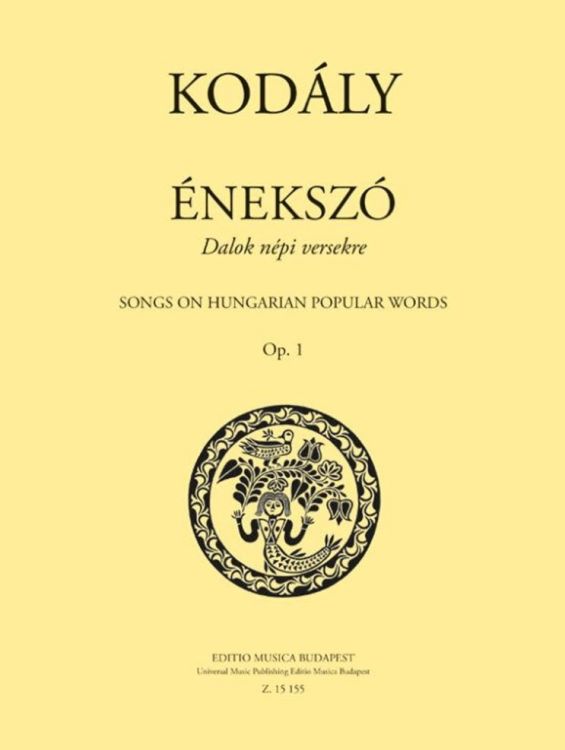Kodaly Enekszo op 1
Disponibilité en magasin
Contenu
2. Come to me
3. The cage is open wide
4. I neither toil nor spin
5. My delightful brown-haire mistress
6. Oh, how long it is since we met
7. He who loves a fair one
8. I have always wondered
9. Slender is a silk thread
10. Ah, my beloved
11. Let not your angerise
12. Now it's clear
13. Never again
14. Do you think that I would sorrow
15. Ah, but you know
16. I plucked the fairest flowers
Description
Zoltán Kodály's op. 1, Énekszó (Singing), this series of songs written on Hungarian folk poetry, first appeared in 1921 at Rózsavölgyi Publishing House. On the occasion of the 100th anniversary of the first edition, a facsimile edition of the work and a new edition with Hungarian and English texts has been published, with great help of Mrs. Kodály née Sarolta Péczely.
The series of songs written between 1907 and 1909 simultaneously reflects the composer's first encounter with Hungarian folk songs and Debussy's song poetry. Kodály, who later composed numerous arrangements of folk songs for both solo voice and choir, uses only the texts of folk lyrics in these songs, the melodic world, although reminiscent of Hungarian folk songs in several ways, stems from his own melodic invention. And in piano accompaniments, you can feel the experimental spirit and atmosphere-creating power of the young composer at the same time.
Spécifications
-
- Zoltán Kodály
- Enekszo
- 16 Lieder
- op 1
- Editio Musica Budapest
-
- chant
- 1
- piano
- 1
-
- ung/engl
- 2022
-



